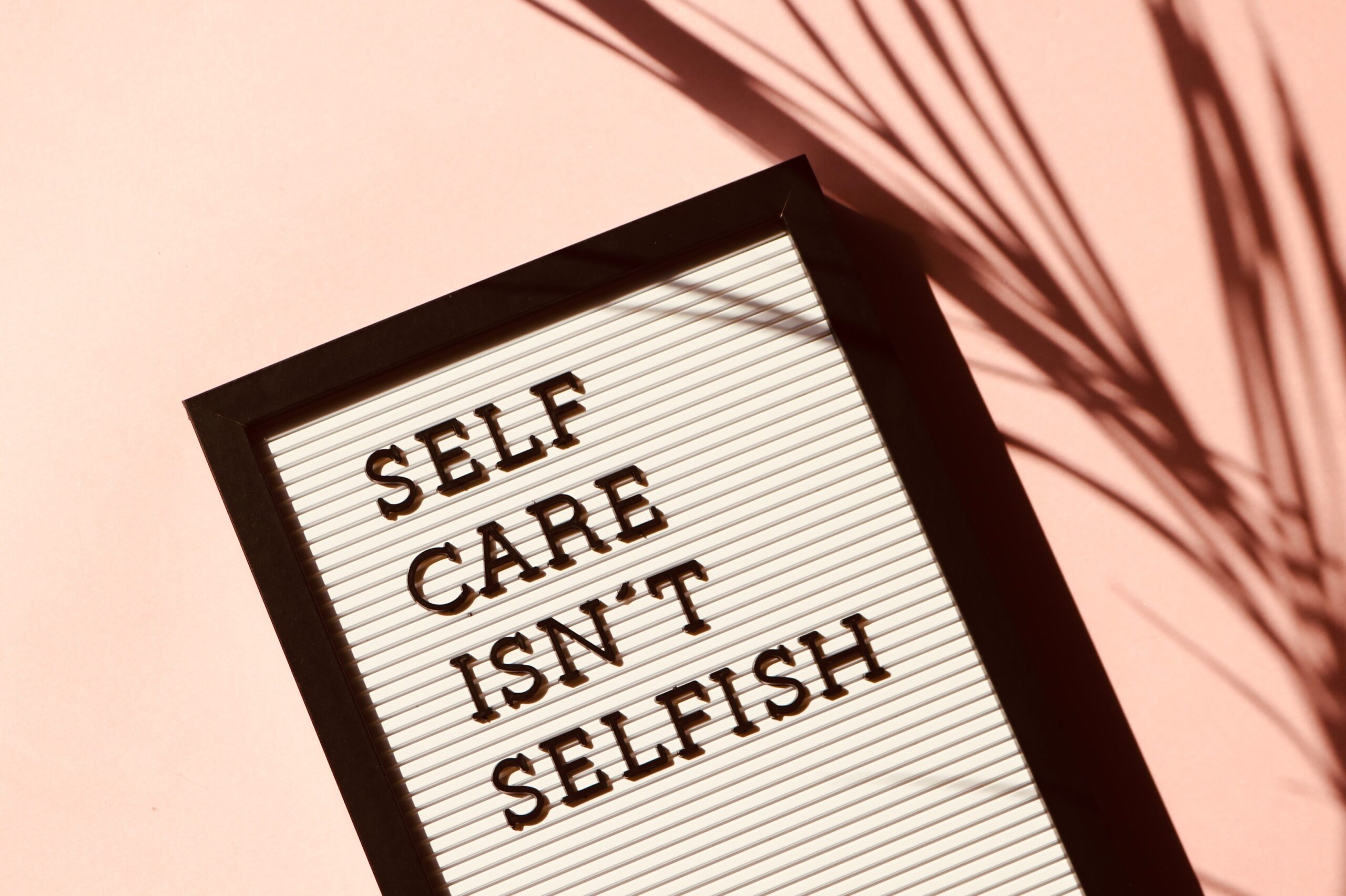I recently spoke with a friend of mine, Lisa, who had been a professional caregiver for most of her working life. She was naturally drawn to the work from a young age as it aligned with her ability to lead, care and nurture others. While she found the work rewarding, she also shared cautionary tales about her own mental health during her time as a care worker.
“I would come home from 10-12 hours of caregiving and feel like a zombie,” Lisa said. “I tried to fill the void of my own self-care with quick fixes like alcohol or Netflix binges, but ultimately, I was learning hard and fast that I needed to create something long-term to sustain myself. I had to include myself within my own caregiving.”
She found ways to do just that. She woke up earlier to begin a small self-care routine of hot showers, yoga and 15 minutes of reading before work. “This made an incredible difference in my life,” said Lisa. “I began to walk taller and feel stronger and more confident. I felt like I was honoring myself. I felt like I had value and my own life began to have real meaning again.”
This simple decision to cater to her own wellbeing elevated other areas of her life. “All of my life started to feel better when I made these changes. I started to care more about what I ate and how I looked. Everything began to fall into place,” she said.
Lisa had found herself again and loved it.
This resonated with me. Although I am not a professional care worker, I am a parent and am in charge of someone else’s care. I am guilty of negating my own needs in the process of caring for others.
There is a wonderful anonymous quote that states, “[…] and if I asked you to name all the things that you love, how long would it take for you to name yourself?” I would also add, “If we named all the things we care for, how long would it take to name ourselves?”
Self-care is not a reward—it is an essential component of living well. Now more than ever, we need to reprioritize our caregiving to include ourselves. We need to stop deflecting our needs by excessively caring for others by redesigning the ebb and flow of our caregiving.

First, identify any personal barriers that may be thwarting your own self-care. One common barrier is the misconception that putting our needs first (or into play at all) is selfish. This martyrdom is an antiquated illusion that only breeds exhaustion, resentment and low self-value. There is no glory in being a martyr, only a slow withering of our spirit. Sacrificing one’s needs to gain recognition for service is an illusion.
We need role models who prioritize their self-care needs. We are hungry for images of people replenishing their batteries, honoring their health and loving themselves. The more we see this example in the world, the more this paradigm shift becomes the new normal.
So where to begin?
Nourish your self-care with a simple commitment to value yourself. Commit to respecting your personal needs and permit yourself to move toward giving yourself what you need. Embody a lifestyle that incorporates self-care in all areas: mind, body and spirit.
Begin with the concept of replenishment then move on to a consistent practice that prioritizes inner harmony and allows for daily care.
Replenishment tools can include:
- Spending time alone. Allow yourself time to step away from the world and unplug from responsibilities. This includes saying no to requests for your time and attention.
- Listening to music that you love
- Journaling to let go at the end of the day or recognize all that you accomplished during the day
Think about the things you love doing and put dates on a calendar to do them. Consider the sustainability of your body and treat this one-time gift with total care. The food you choose should fuel your body, not fool your body. Allow your body to move. Movement frees stuck energy within the body and releases endorphins. Exercise grounds you and allows you to feel good.
Feeling good. Feeling loved. Feeling valued. These are some of the aspects that go hand in hand with caregiving. The most important decision you can make today is to give all of these to yourself. Show yourself that you matter. The world is waiting for you to be the example it needs to see.
To accompany this column, Elizabeth has created this journal prompt for readers. Click here to download the worksheet.








